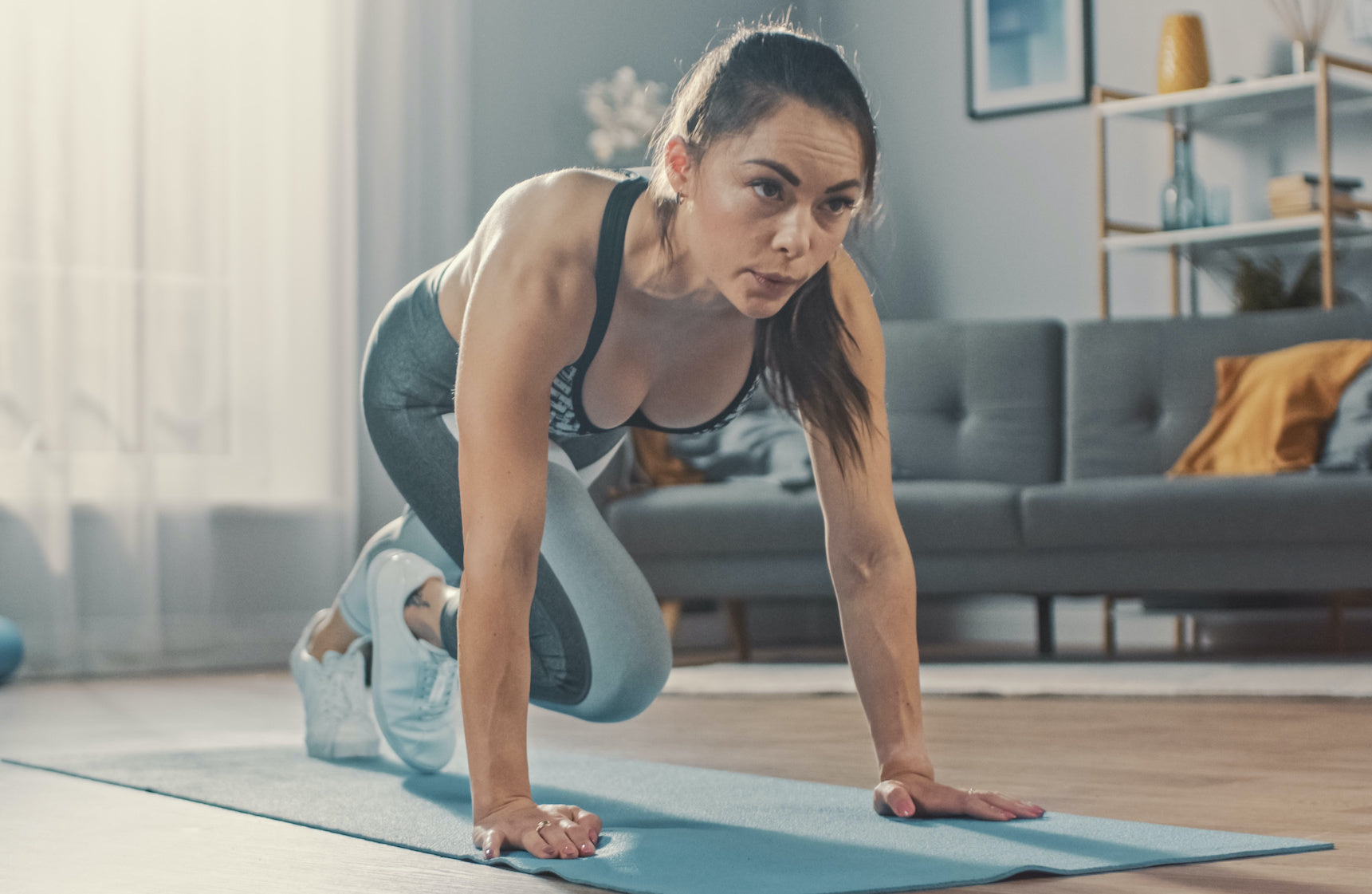
Is Your Workout Causing Your Breakout? The Truth about Acne Mechanica
It’s the end of a long, busy day. You’ve accomplished a lot, so you’re tired but happy. You cruise through your evening routine, sliding into pajamas and heading into the bathroom.
That’s when you see it — a rash-like breakout glaring out from your reflection. The pimples are scattered across your forehead or maybe lining your jaw, angry and unwelcome intruders. Cue the end of your good mood.
How can this be? You’ve been eating right, and exercising, and the rest of your skin looks fine! It’s not your period, and you aren’t even feeling stressed. There’s no reason for you to be breaking out!
...Unless this isn’t regular acne. You may be facing down a new foe: acne mechanica.
What is Acne Mechanica?
Despite how it may sound, Acne Mechanica isn’t a 90s prog-rock group or the next show by Cirque du Soleil. It’s also not an acne-fighting giant robot, though wouldn’t that be cool?
No, acne mechanica is something much worse: a stubborn type of breakout that you may be fighting even as we speak. And it may not be only affecting your face — acne mechanica can also appear as body acne!

How is Acne Mechanica Different From Hormonal Acne?
Acne mechanica isn’t your typical breakout, the kind usually caused by sebum and dead skin plugging up your pores. Instead, acne mechanica attacks your complexion from the outside. Specifically, it is caused by persistent pressure, friction, heat, and smothering against your skin.
The most common sites for an acne mechanica breakout are your chin, jawline, forehead, neck, and shoulders. People with acne-prone skin are most at risk of developing acne mechanica, but it can also strike people with previously flawless complexions. Talk about a rude awakening!
What Causes Acne Mechanica?
Acne mechanica is also referred to as “sports-induced acne,” though sports aren’t the only cause. It earned this nickname because many athletes wear tightly constricting protective gear that can rub and irritate the skin into an acne mechanica breakout. A few obvious examples may come to mind, like the helmets and shoulder pads strapped onto a football or hockey player.
Some less obvious culprits might include:
- Equestrian helmets
- Baseball caps
- Jockstraps
- Wrestling knee pads
- Bicycle helmets
- Soccer shin guards
- Golf bag shoulder straps

There are also plenty of causes that have nothing to do with sports. For example, the chin rest of a violin, the straps of a backpack, a too-tight bra band, prosthetic limbs, or even the horrifically uncomfortable armpit pads on a pair of crutches. Military personnel are also likely to contract acne mechanica from their protective gear, weaponry straps, and other heavy equipment.
For those of us without a thigh gap, there may be more bad news: dermatologists are exploring skin-on-skin friction as another possible cause of acne mechanica.
Is My Body Acne Acne Mechanica?
Acne mechanica breakouts closely resemble hormonal breakouts, which can make them tricky to identify. Consider the context: Does your acne meet any of the following criteria?
- Your skin is mostly clear, with breakouts appearing in specific areas where you often carry, wear, or lean against something.
- The breakouts have occurred suddenly after a period of regular physical activity.
- Your breakouts feel chafed and close to the surface.
Seem familiar? It may be acne mechanica.
How Do You Treat Acne Mechanica?
The icing on this terrible, pimply cake is that acne mechanica can be difficult to conquer — sometimes more difficult than your regular acne! It’s not usually a serious condition but can become a more significant problem if left untreated.
The most effective treatment for acne mechanica is prevention. One suggested prevention method is to stop engaging in the trigger activity — that is, whatever sport or hobby is contributing to the breakouts. That’s not a very reasonable solution, though. Do you want to let acne rule your life like that? It’s not the boss of you!
Instead, keep living your truth! There are ways that you can stay active and be prevention-conscious, so you can go to soccer practice or break in that new, slightly-too-tight bra without fearing the looming specter of acne mechanica.
If exercise is your thing, experts recommend wearing moisture-wicking or pure cotton clothing during physical activity. Especially under any restrictive sports equipment, like those shoulder pads, we mentioned earlier.
And of course, you should always follow with a thorough cleansing after your sports practice/violin recital/day of boot camp. Be sure to shower ASAP, focusing on any areas that may have been irritated by gear or clothing.
Don’t forget those acne mechanica problem areas on your chin, jawline, and forehead! For a tough but gentle facial cleanse, we recommend using our Radiant Cleansing Nectar. Suitable for all skin types, it will remove dirt, sweat, and even makeup, all while nourishing your skin and fighting harmful bacteria.

Acne mechanica is insidious, popping up to steal all the fun from your sports and hobbies, but you don’t have to let it! Try using these tips to help keep your skin clean, dry, and protected. Remember: the best defense is a good offense!





